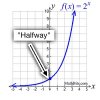I get a little worried about people growing faith in computer systems in areas which are not controlled such as on the roads and in the sky. On the roadways mainly because of weather, conditions, and especially the fact that it is often a crowded environment, with all kinds of other variables such as pedestrians, animals, etc.
In the skies because of weather conditions, and the fact that a computer can only "know" what it can read from sensors for the outside world.
Faith in programming and testing is not warranted. Read up on systematic failures in our history, or the problems of testing. If a computer has bad data it is garbage in garbage out. A blocked pitot, a miscalibrated sensor, a sensor that fails, etc make a computer make crazy decisions. Imagine you made a simple calculator, not even scientific with cos, square roots, etc. and wanted to test it. Even if you programmed a robot that could hit the keys at a rate a hundred or more times a human, to test every combination of numbers adding, subtracting, multiplying, dividing, it would take a century to test them all. They test representative and assume all the others are correct. On top of that, who checks the checker? There may be glitches in certain combinations.
It's humans that program, and decide what to test, and how, and then how to verify the results.
Computers have no "will". They ar programmed to tasks, but the pilot has skin in the game. Humans have much more adaptability though we make mistakes, than programs.
Then there is connectivity. Security, vulnerability to hacking and outside forces wanting possibly to crash a plane.
There are many stories I've seen on "Air Crash Investigaions" where pilots, with damages to the airplane (through explosions, strikes, failures of components) that managed to deal with, fly, and land planes that seem almost impossible and I am one hundred percent certain no program would have been able to tackle. It's happened.
I'm no Luddite, but sometimes people out way too much faith in technology. I'm a programmer, and I have most definitely seen a huge degradation in engineering and programming examples now that I thought not even possible. New updates in my tv box, it's like a TiVo and receiver, etc. are like a textbook of bad programming and user interface.
My wife bought me a DAB alarm clock recently. How badly can one design an alarm clock? To depths I hadn't thought possible. LCD display straight on looks fine, but the light coming off any angle, lights up the room like stadium lights. The set alarm function is hidden below about four submenues, which to access you have to hit combinations of keys. You can see the alarm is set, a cute little alarm bell is shown, but to see what it is set to, you hit two of three buttons at the same time, and then must scroll (another button) to alarm and choose it, but must do this within like two seconds or it just goes back to the main time screen.
On the light thing, I did find three settings for intensity. One was brightest, next was really about the same with sidelight, the third and lowest...off. So no display at all.
This was a hitachi.
I think we are going towards ever more sophisticated logarithms, and concepts, but that are beyond our ability to test, and there is a steep decline of "common sense" and best practices, and design going on now.
When it comes to automobiles too...they've had very bad experience which should have been obvious if thy had thought at all, with "autopilot" on autos where the driver is still "responsible" ultimately. That is insane. Drivers that believed the car was fully autopilot, have crashed. They then blame the driver. The thing is, their model was that the autopilot would drive the car, but the driver had to keep aware and be ready to take over if needed. Obviously you are more in the game if you are driving. In fact their model seems to be the driver had to be more aware all the time than if they were driving. And of course there would be a lag as the driver (assuming he isn't asleep, reading a newspaper, skyping or something) waited to see if they should take over.
Ultimately, driving is a thing you need to keep doing to keep up proficiency, and also, a pure pleasure if you are a good driver to smoothly brake, keep speed constant, drive well. Flying is even more so. Pilots dig flying and the best ones aim for perfection right? Make it mundane, and something anyone can do, and you aren't going to keep the good pilots, and then where are we when systems fail?





